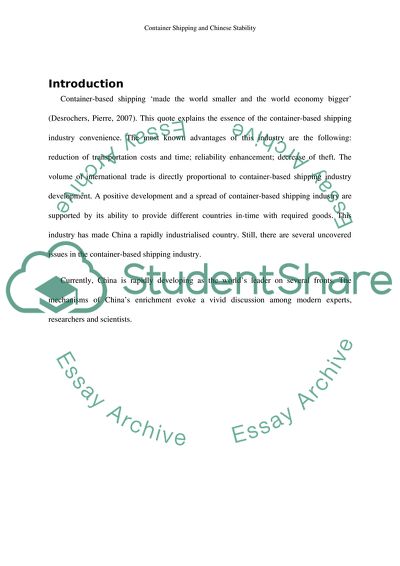Cite this document
(Container Shipping and Chinese Stability Coursework - 1, n.d.)
Container Shipping and Chinese Stability Coursework - 1. https://studentshare.org/engineering-and-construction/1748442-container-shipping-and-chinese-stability
Container Shipping and Chinese Stability Coursework - 1. https://studentshare.org/engineering-and-construction/1748442-container-shipping-and-chinese-stability
(Container Shipping and Chinese Stability Coursework - 1)
Container Shipping and Chinese Stability Coursework - 1. https://studentshare.org/engineering-and-construction/1748442-container-shipping-and-chinese-stability.
Container Shipping and Chinese Stability Coursework - 1. https://studentshare.org/engineering-and-construction/1748442-container-shipping-and-chinese-stability.
“Container Shipping and Chinese Stability Coursework - 1”. https://studentshare.org/engineering-and-construction/1748442-container-shipping-and-chinese-stability.


